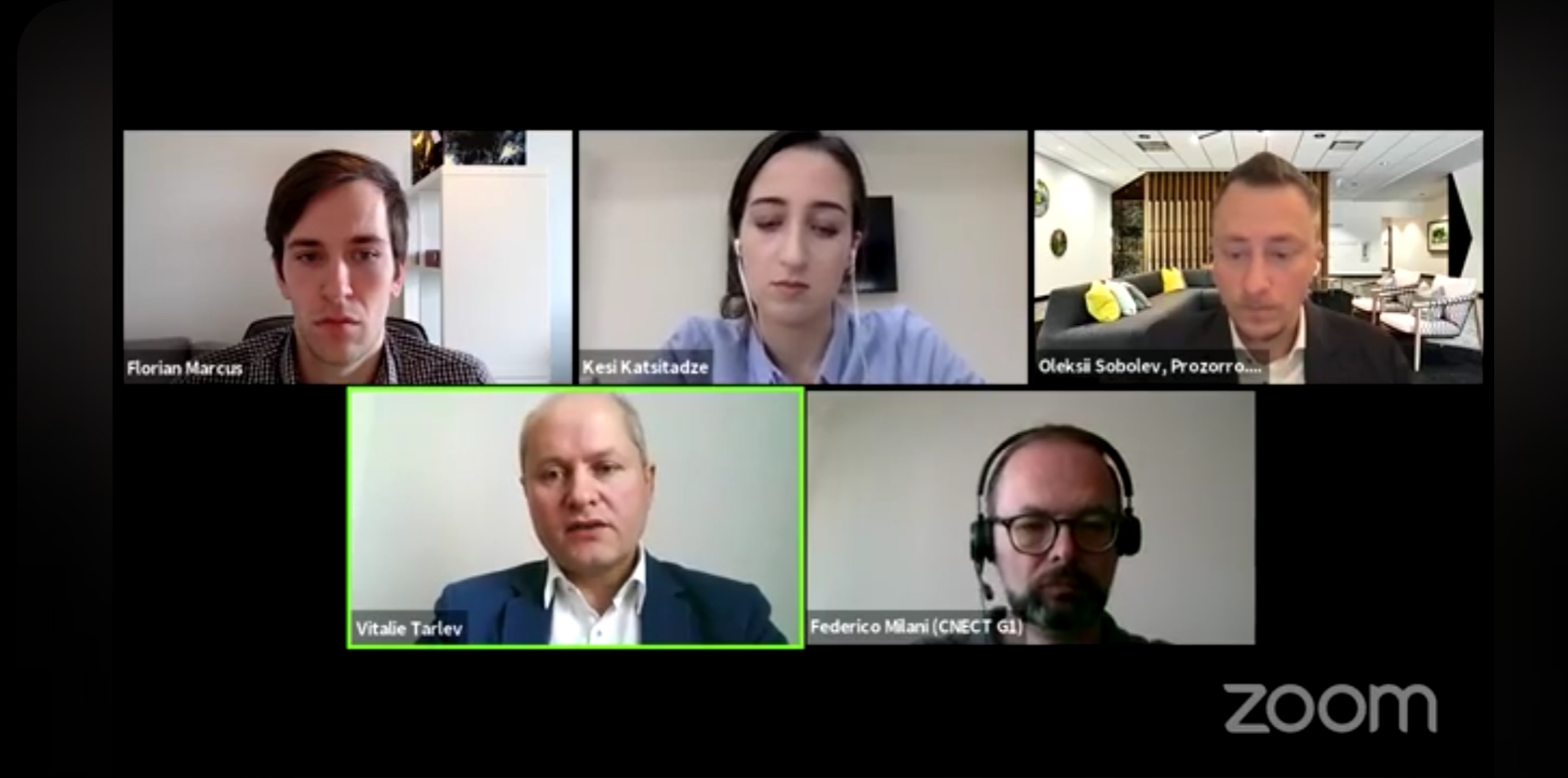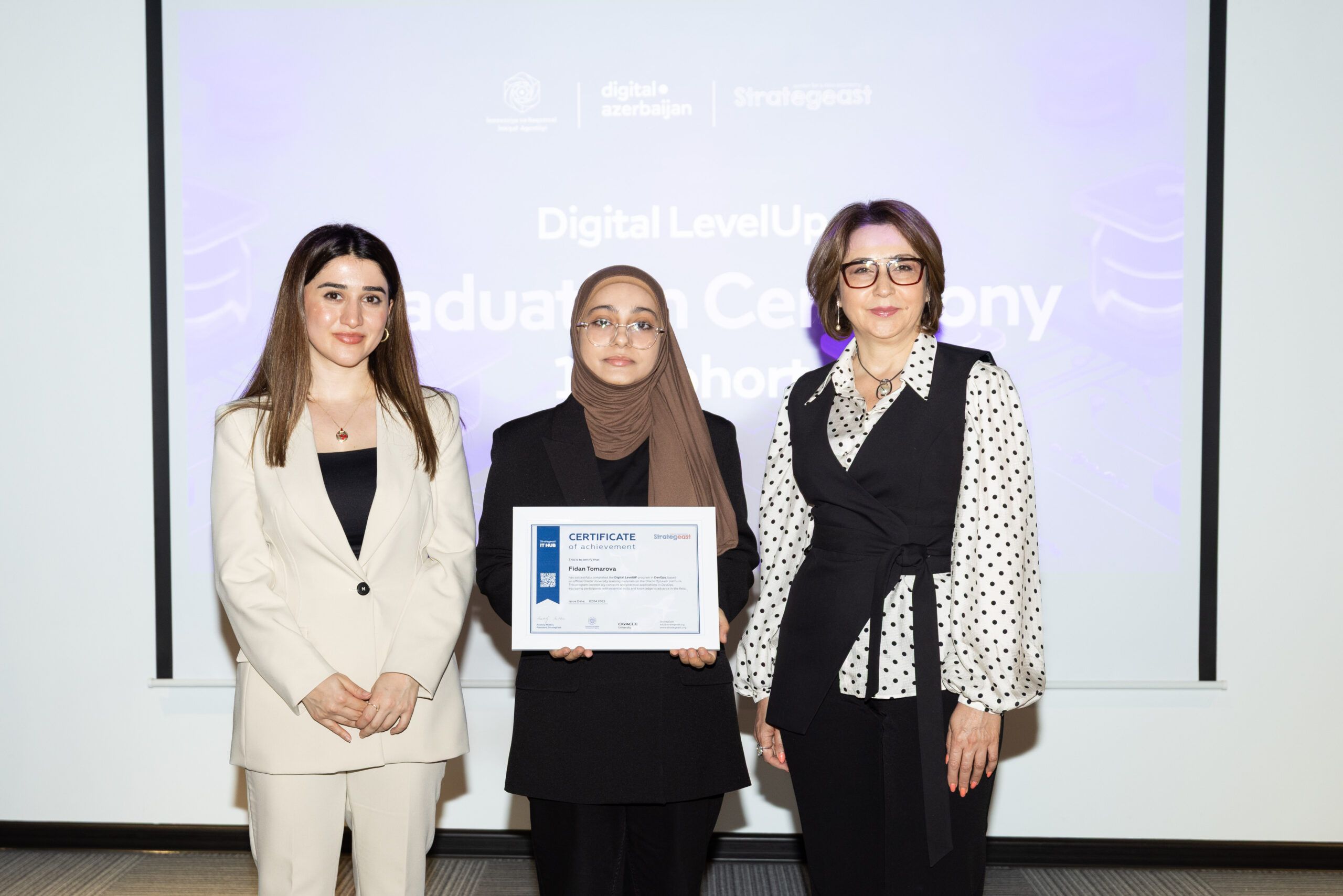In 2020, the European Commission adopted its European Data Strategy. On November 25, 2020, the European Commission issued the Data Governance Act, the first proposal regarding the implementation of the Strategy. With the Strategy implementation, the EC is targeting to reach €829 billion value of the data economy in 2025 in the EU from €301 billion (2.4% of EU GDP) in 2018.
What are the prospects for the data economy in Eastern Partnership countries? To what extent are the Eastern Partnership countries able and interested to become part of the common European strategy? This has been discussed at the StrategEast.Live panel discussion “European data strategy implementation in EaP”.
Opening the panel, Federico Milani, Deputy Head of the Data Policy and Innovation Unit of CNECT Directorate General, European Commission, shared the main objectives of the European strategy for data. “The European Data Strategy is aimed at fostering digital economy by fostering data economy. At the same time, sharing the data means also selling it. We have identified four key actions that we are following. First, creation of a legal framework, that will allow all the stakeholders to share the data in a trustworthy environment. Second, investments of EUR 4-6 billion in a High Impact Project on European data spaces. The third priority is empowering digital skills and digital literacy in capacity building to SMEs. And fourth is the rollout of common European data spaces in crucial economic sectors.” Mr. Milani also underlined the importance of building trust in data sharing and ensuring fairness in the allocation of data.
In turn, Florian Marcus, Digital Transformation Adviser at the e-Estonia Briefing Centre, shared some results of making 99% of Estonia’s government services available online. “One of the results of government services digitalization is the enhancement of digital education. Every 10th university student in Estonia studies something IT-related – whether it is about data governance, or programming, or data law.” Mr. Marcus also provided some data use cases for society, including proactive government services like reserving a place in school for a newborn child 6 years ahead, open data map which shows car accidents and helps improve the car insurances and cities infrastructure. According to Mr. Marcus, Estonia is trying to turn “big brother” to “small brother” – there is information on every authority which looked at a citizen’s data, when and for what reason, – which builds trust in the use of open data.
Oleksii Sobolev, CFA, Chief Executive Officer PROZORRO.SALE, Ukraine, told about the success story of building a state in a smartphone in Ukraine. “We have secured an interconnection with various registers so more and more government services are available online in Ukraine. You know that digitalization was one of President Zelensky’s priorities. Just yesterday we’ve made one more leap towards that. The Parliament adopted a bill that legally equates e-passports to ordinary paper documents. This is a landmark event in the history of modern Ukraine which will stimulate the use of digital services by older people as well.”
According to Vitalie Tarlev, Moldova Digitalization Advisor at European Bank for Reconstruction and Development (EBRD), the societies are moving to mass consumption of the data and the local IT-community in Moldova is well prepared for that. “In Moldova, open data is a hot topic for about 10 years. More than 7 years ago we’ve set up a legislative framework for the data to be available online. Since then we’ve learned some lessons – we understood that opening data is not enough, we need to have processing capacities, which can produce added value to improve the business environment and consumer experience. The digital literacy rate is critical – it is about how data is used and how people feel comfortable are in its daily usage.”
Answering the question by the panel Moderator Kesi Katsitadze, Development Manager Business and Technology University (BTU), Georgia, on what programs to increase digital literacy can be named; Florian Marcus brought an example of the Tiger Leap Program. The Program was launched in Estonia back in the 1990’s to adjust the education system to the needs of a rapidly evolving information society by providing ICT education to people and promoting the development of learning software. According to Mr. Marcus, to succeed in digitalization, like it or not, one has to start in the physical world.
The panel discussion was held on March 31, 2021, the recording is available here.
StrategEast.Live is a series of online panel discussions launched by StrategEast in 2020 to continue the conversation on how technology can lead to an overall transformation in Eurasia. During these events, the esteemed guests put forward ideas that facilitate the further development of a knowledge-driven economy in the region.




